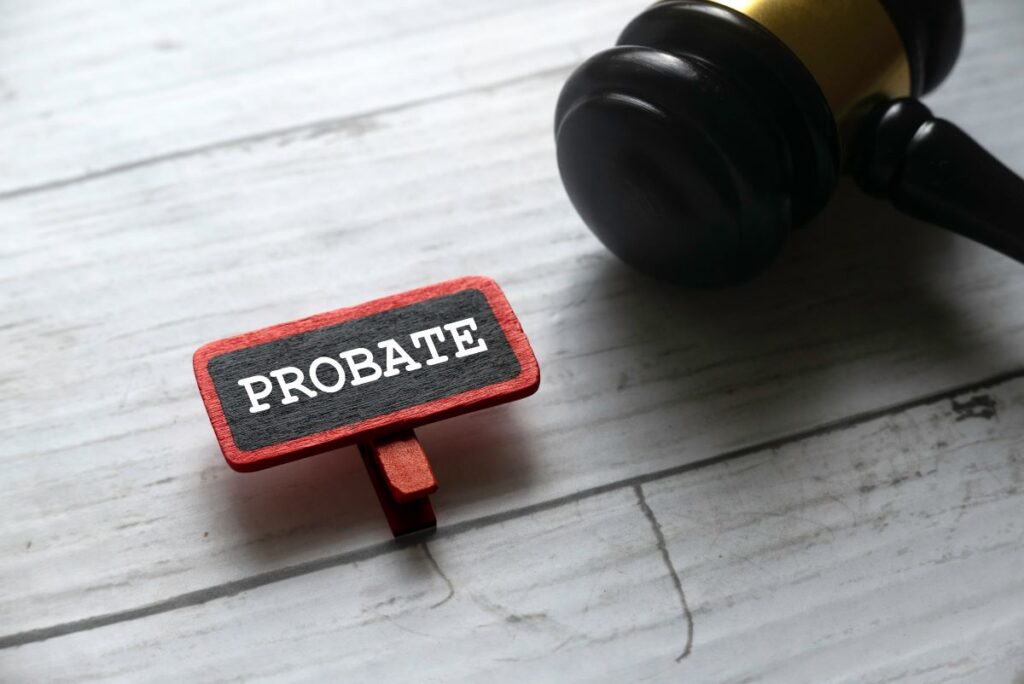Your hobbies and collections are more than pastimes—they’re investments of time, money, and emotion that reflect who you are. Whether you’re a collector of vintage toys, an artist with a studio of supplies, or a musician with prized instruments, your passion projects deserve to be part of your legacy. Protecting your passion projects is essential; here’s what collectors need to know about protecting your passion projects and how estate planning can help you protect and preserve them.

Why Estate Planning Matters for Hobbyists and Collectors
Hobbies are a significant part of our lives. According to the US Bureau of Labor Statistics 2023 Time Use Survey, Americans spend about five hours a day on leisure activities and hobbies.1 Another survey of Americans taken during the COVID-19 pandemic found that 6 in 10 had adopted a new hobby as they were left with more spare time and nowhere to go.2 For many, these pursuits become lifelong passions or even profitable ventures.3 And an additional one-quarter of those with new hobbies said they hoped to turn their new hobby into a form of income in the future.4
In 2023, the collectibles market as a whole, driven by online marketplaces and digital auctions, was estimated at nearly $500 billion and growing.5
For others, a private passion can turn into a life’s work, like it did for Jim Irsay, the NFL’s Indianapolis Colts owner, or Joel Platt, a renowned sports memorabilia collector. These men have gone to great lengths to preserve their collections for posterity. Irsay takes his diverse collections of historic artifacts, featuring items from sports, pop culture, literature, and American history, on the road and shows them off for free.6 Platt’s collection is currently housed in a showcase museum in Boca Raton, Florida.7
Like collectors, many of the most famous artists started out pursuing a passion they never expected to get rich from, only to have their works later sold for a small fortune.
While he was alive, Vincent van Gogh sold a single painting in 1890 for a meager 400 francs,8 or about $2,670 in today’s US dollars. In 1990, one of his paintings sold for $83 million at auction.9
Then there’s fashion icon Coco Chanel, whose inspiration to design clothes for women out of practical necessity launched one of the world’s best-known clothing brands. Her first fashion success came from a dress she made from an old jersey.10 Today, the Chanel brand is valued at around $20 billion.11
Most of us may not reach the heights of Van Gogh, Irsay, Platt, or Chanel in our hobbyist or artistic pursuits. However, that does not mean our passions are without value and that we should not take steps to ensure our sweat equity is an investment in our legacy. Protecting your passion projects is essential; here are some steps collectors need to know about protecting your passion projects.
Steps to Include Your Passion Projects in Your Estate Plan
1. Create a Detailed Inventory of Your Collections
Start by documenting your collection or hobby-related items:
- Include descriptions, photos, certificates of authenticity, and provenance (ownership history).
- Record care instructions and insurance information.
- Store this inventory securely (e.g., in a safe deposit box or encrypted cloud storage).
- Update it regularly, especially when you revise your estate plan.
2. Get a Professional Appraisal
Determine the value of your collection, tools, or materials with a professional appraisal. This ensures that:
- Your personal representative or trustee can distribute or sell items fairly.
- You have an accurate record for tax and insurance purposes.
3. Discuss Your Plans with Family
Talk with your loved ones about the significance of your collection or hobby. Share:
- Why these items matter to you.
- Your wishes for how they should be managed or distributed.
This helps ensure your passion is appreciated and not dismissed as “just more stuff.”
4. Decide on Distribution
Determine how you want your collection handled:
- Pass It On: Gift it to a family member, friend, or organization with shared interests.
- Sell It: Work with dealers to sell items during your lifetime or direct your estate personal representative to do so after your death.
- Donate It: Leave it to a museum, library, or nonprofit that aligns with your passion.
- Hybrid Approach: Combine gifting, selling, and donating based on your collection’s size and significance.
5. Formalize Your Wishes in an Estate Plan
Verbal instructions or casual conversations aren’t enough. Include your plans in a legally binding estate plan:
- Use a will or trust to specify who inherits your items or proceeds from their sale.
- Consider creative arrangements, like hosting a private exhibition for friends and family as part of your memorial.
The Risks of Collectors Skipping Estate Planning
Without a written plan you cannot adequately protect your passion projects. As a collector, you need to know:
- Your legacy may not reflect your intentions.
- Your family may fight over who gets what—or dismiss the collection entirely.
- Valuable items could be lost, sold improperly, or discarded.
A Serious Passion Deserves Serious Planning
Your hobbies and collections define your identity and leave a lasting impression. Your passion projects are worth protecting and we can help you figure out what you need to know a a collector. While you can’t take your passion projects with you, you can ensure they’re preserved and appreciated.
Contact us today to create an estate plan that celebrates your life’s work and gives your passion the legacy it deserves.
- American Time Use Survey News Release, U.S. Bureau of Labor Statistics (June 27, 2024), https://www.bls.gov/news.release/atus.htm#:~:text=Leisure%20and%20Sports%20Activities%20in,%2C%20compared%20with%204.8%20hours. ↩︎
- Matt Schulz, 53% Who Took on a Pandemic Hobby Went Into Credit Card Debt as a Result, LendingTree (April 6, 2021), https://www.lendingtree.com/credit-cards/study/quarantine-hobbies-credit-card-debt. ↩︎
- Id. ↩︎
- Id. ↩︎
- Collectibles Market in 2024 was estimated at $492.6 Billion, Annual Growth 9.2%: Research by Market Decipher, Yahoo!Finance (May 9, 2024), https://finance.yahoo.com/news/collectibles-market-2024-estimated-492-103200953.html. ↩︎
- Stephen Holder, Why Colts owner Jim Irsay refused over $1B for his collection, ESPN (July 14, 2023), https://www.espn.com/nfl/story/_/id/37969744/why-colts-owner-jim-irsay-refused-1b-collection. ↩︎
- Ana Veciana-Suarez, Joel Platt and his Dream Collection, Intelligent Collector, https://intelligentcollector.com/joel-platt-and-his-dream-collection (last visited Dec. 18, 2024). ↩︎
- Brian Boucher, Art Bites: The Only Known Painting Van Gogh Sold During His Lifetime, Artnet (Feb. 13, 2024), https://news.artnet.com/art-world/story-only-known-painting-van-gogh-sold-2432275#:~:text=Belgian%20painter%20Anna%20Boch%2C%20a,either%20350%20or%20400%20francs. ↩︎
- Martin Bailey, The ten most expensive Vincent van Gogh paintings, The Art Newspaper (April 29, 2022), https://www.theartnewspaper.com/2022/04/29/the-ten-most-expensive-van-gogh-paintings. ↩︎
- Coco Chanel, Biography (Dec. 10, 2021), https://www.biography.com/history-culture/coco-chanel. ↩︎
- Tugba Sabanoglu, Brand value of Chanel worldwide from 2017 to 2023 (in million U.S. dollars), Statista (Feb. 22, 2024), https://www.statista.com/statistics/1010860/chanel-brand-value-worldwide/#:~:text=In%202023%2C%20Chanel’s%20worldwide%20brand,the%20most%20recently%20reported%20period. ↩︎

